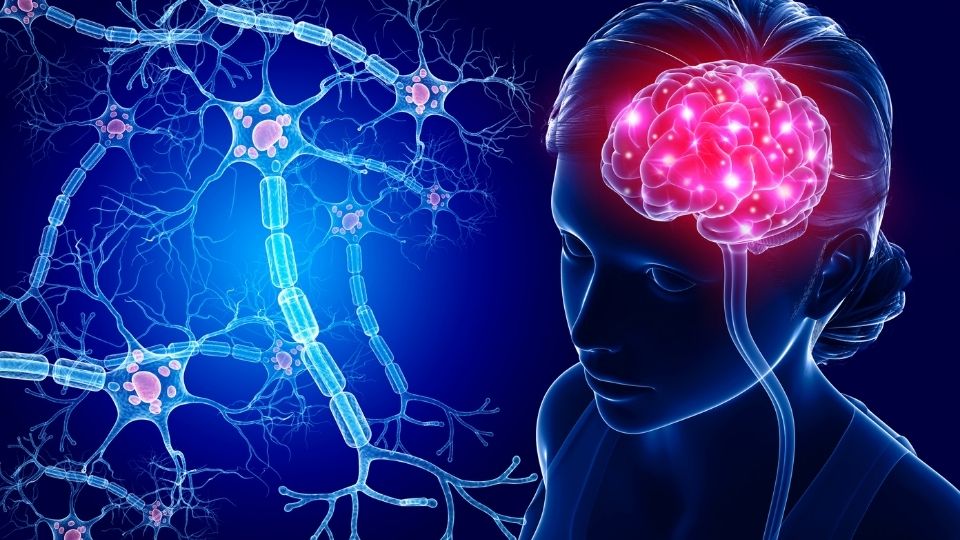Are My Memory Changes Normal?

Normal Age-Related Memory Changes
As the human body ages, so does the brain, even with normal healthy aging. Some older adults may begin to notice that it is now taking a little longer to learn new things, or they have become a little forgetful. They may misplace things like keys or glasses or occasionally forget why they walked into a room to do something, or whether they locked the house before they left to run an errand. Sometimes they can’t remember the name of someone they haven’t seen in a while. These are often signs of “mild forgetfulness,” and not serious memory problems (Cooper et al., 2011). Remember that forgetfulness happens at every age. Twenty-yearolds also misplace their car keys, and sometimes can’t remember the name of someone they haven’t seen in a while. Mild forgetfulness is not necessarily caused by age. While some older people attribute these instances as having a “senior moment,” most likely it is not attributed to age at all, but is simply a part of normal errors in memory function. It could be you were distracted when you parked your car and didn’t “input” the memory very well to begin with – or it could be a momentary problem with memory retrieval – you know the person’s name but just can’t seem to recall it.
Mild Cognitive Impairment
Sometimes problems with memory and other brain functions go beyond typical forgetfulness. The word “cognitive” refers to many types of thinking tasks the brain controls, including learning new things, recalling information, decision-making, use of language, and correctly knowing the current time and place. In some cases, people with memory problems that occur more regularly than just “mild forgetfulness” have a condition called “mild cognitive impairment” (MCI). In MCI, people have more memory problems than normal for their age, but they are still able to carry on their normal daily activities. Problems with movement and with the sense of smell have also been linked to MCI (Conti et al., 2013). MCI is not dementia, but an “in between” condition regarding memory. Although older people with MCI are at greater risk for developing Alzheimer’s disease (AD), not everyone with MCI will advance to full-blown AD. Many people with MCI will even revert back to normal cognition. It may be hard to determine if a person with MCI is going to eventually go on to develop Alzheimer’s, in part because the first symptoms of Alzheimer’s vary from person to person. That being said, decline in memory that is accompanied by decline in other aspects of cognition, such as not being able to find the right words, having vision/ spatial issues, and difficulties with reasoning or judgment, may be an indicator that the MCI is really early stages of something more serious, like AD.
How Do We Build “Cognitive Reserve” in Our Brains?
Scientists have coined the phrase “cognitive reserve” to describe how our brains are stimulated to build more connections that will help our memory to function well into late life (Stern, 2006; Opdebeeck et al., 2016). Our brains have millions of connections that transfer information from one part of our brains to another, just like a complex highway system. It is believed that when we participate in activities that challenge us to use our brains (such as doing crossword puzzles or learning a new language), that we are actually building new connections. Volunteering, hobbies and many recreational and social activities are recommended to stimulate our brains and help us maintain good cognitive health. A person who has spent his or her life participating in activities that build these additional “pathways” in the brain is said to have built up greater “cognitive reserve.” The brain in such a person may be able to compensate when a disease such as AD has begun to cause damage, thereby prolonging the number of years with higher cognitive functioning. This is much like a complex highway system that allows travelers to simply take an alternative route when one road has been damaged, so they can still make it to their destination. (Wang et al., 2002; Wilson et al., 2012).
When It May Be Good to Get a Physician Evaluation
While “mild forgetfulness” is a normal part of adulthood and aging, other more pronounced changes in cognitive function indicate that a more thorough evaluation by a physician is warranted. If you or a loved one are beginning to worry about your memory changes or if you are experiencing some of the following kinds of cognitive changes, it is probably a good idea to get your memory evaluated professionally (this is not a complete list, but gives some examples).
- Getting lost in familiar surroundings, or having trouble finding your way to places you have had no trouble finding in the past (e.g,. not knowing how to get to your regular grocery store, or to a relative or friend’s house that you visit often).
- Having trouble following the plot of a TV show.
- While reading a book, having to re-read a passage over and over and still struggling to understand the meaning.
- Having a sense that your memory is noticeably worse than friends your same age.
- Having very frequent problems in thinking of the right words to say.
- Difficulty in learning new tasks or in thinking through problems to problem-solve.
- Forgetting how to use a familiar device, like your phone or a commonly used appliance.
Can’t I Just Take an Online Memory Test to See if I Have Alzheimer’s Disease?
A doctor can conduct a more complete assessment that takes into account memory changes and how they are affecting the person’s life, and other medical history facts. This helps to clarify whether an individual is in the early stages of dementia, or is only experiencing normal age-related cognitive changes. This is very useful information to have, but in the interest of saving money or trying to avoid seeing a doctor, it might be tempting to seek out some kind of “dementia test” on the Internet. However, be wary of online tests that advertise they will give you an AD diagnosis (often for a fee). A recent study of such online tests found that, out of 16 online tests reviewed, 75% had poor scientific validity or reliability and 100% had poor ethics (Robillard et al., 2015). It is easy for businesses trying to make money to prey on the fear that people have about getting dementia; however, relying on these online dementia diagnosis programs can leave you with an incorrect diagnosis.
A “false positive” diagnosis (a test saying you have AD but you really don’t) can be psychologically damaging. Similarly, a “false negative” diagnosis (a test saying you don’t have AD but you really do) can prevent you from seeking helpful treatments, services or therapies. The only reliable way to get an accurate evaluation and diagnosis is to see a physician. In addition, learning all you can by reading informative articles from reliable sources on the Internet such as the National Institute on Aging website, can help you better understand normal memory changes with aging, the natural course of AD, and related concepts.
What Else Can Cause Memory Problems, Besides Dementia?
Aside from the various types of dementia such as AD, a number of medical conditions can also cause significant memory problems. The good news is that these problems typically go away once you get treatment for the actual condition causing the symptoms. Some medical conditions and experiences that may cause memory problems are depression (Gotlib & Joorman, 2010), some medications (Chavant et al., 2011), drinking too much alcohol (Perreira & Sloan, 2002), and head injury such as from a fall or accident (Whiteneck et al., 2016). In all cases, medical treatment should be sought to prevent permanent damage and to obtain an accurate course of treatment.
Why Early Diagnosis of Alzheimer’s Disease Is important
You might be tempted to avoid getting a doctor’s evaluation for possible AD, simply because you don’t want to hear bad news. The fear of AD may be worsened if there are others in the family with this disease such as parents or siblings. This fear can make an individual simply avoid seeking help altogether and remain in denial, an understandable emotional reaction. However, there can be some real advantages to getting your memory problems professionally evaluated. First, as discussed above, there are many conditions that can cause dementialike symptoms, many of which are treatable or reversible. It could also be that the memory changes you are worried about might well be normal agerelated changes and not dementia after all, and talking to your doctor can put your mind at ease.
Additionally, having an initial “baseline” evaluation will help your doctor to track changes in your memory over time to help clarify the diagnosis for your memory problems down the road. Also, if it turns out that you do have some form of dementia, learning about it early can help you better prepare. Along with the notion that “knowledge is power,” learning about your dementia diagnosis early will help you (and your future caregiver) be better informed as to what kinds of changes to expect in the years and months ahead.
Another benefit of early diagnosis is that, in the early stages of dementia, many people still have a great deal of cognitive abilities and are fully capable of making their own decisions as to future medical treatments, housing changes, financial plans, wills, and so on (Silverstein & Sherman, 2010). They want to be “in the driver’s seat” while they still can, rather than waiting too long when their cognitive abilities have declined to the point that others must make these decisions for them.
Unfortunately, at the present time, there is no known treatment to stop or reverse AD (Hargreaves, 2012), with disappointing drug trial results revealed again as recently as November 23, 2016 (Eli-Lilly, 2016). Even so, having a physician closely monitoring your memory changes over time will make it so that you are “on your doctor’s radar.”
Then, as new medications become available, your doctor can more immediately prescribe these new medicines to you or suggest participation in promising clinical trials of experimental treatments. There are several techniques currently being studied where “biomarkers” are collected from brain images, spinal fluid, and blood, to watch for signs of disease. While more research is needed before these techniques can be relied upon to diagnose Alzheimer's disease in everyday medical practice, they are showing promise (Korolev et al., 2016).
Summary
As we age, our brains age right along with the rest of our bodies. Our reaction time may begin to slow as a result of aging, and we will continue to experience “mild forgetfulness” as a normal part of life. If your memory changes are greater, or these changes seem to be noticeably impacting your ability to carry on your normal day-to-day activities, these are indicators that it is time to be evaluated by a physician for MCI, dementia, or other cognitive problems. An accurate diagnosis of dementia will help you and your physician plan the best course of action for you, to keep your memory as sharp as possible as you get older.
References
- Chavant, F., Favreliere, S., Lafay-Chebassier, C., Plazanet, C., & Perault-Pochat, M. (2011). Memory disorders associated with consumption of drugs: updating through a case/noncase study in the French PharmacoVigilance Database, British Journal of Clinical Pharmacology, 72(6), 898-904. Doi:10.1111/j.1365-2125.2011.04009.x
- Conti, M.Z., Vicini-Chilovi, B., Riva, M., Zanetti, M., Liberini, P., Padovani, A., & Rozzini, L. (2013). Odor identification deficit predicts clinical conversion from mild cognitive impairment to dementia due to Alzheimer’s disease. Archives of Clinical Neuropsychology: The Official Journal of the National Academy of Neuropsychologists, 28(5), 391-399. Doi: 10.1093/arclin/act032.
- Cooper, C., Bebbington, P., Lindesay, J., Meltzer, H., McManus, S., Jenkins, R., & Livingston, G. (2011). The meaning of reporting forgetfulness: a cross-sectional study of adults in the English 2007 Adult Psychiatric Morbidity Survey. Age and Ageing, 40(6), 711-717. Doi: 10.1093/ageing/afr121.
- Eli-Lilly. (2016). Alzheimer’s drug fails clinical trial. (https://www.yahoo.com/news/eli-lillyalzheimers-drug-fails-clinical-trial162854832.html Accessed 11/23/16).
- Gotlib, I., & Joorman, J. (2010). Cognition and depression: Current status and future directions. Annual Review of Clinical Psychology, 6, 285– 312.
- Hargreaves, R. (2012). It ain’t over ‘til it’s over - the search for treatments and cures for Alzheimer’s disease. ACS Medicinal Chemistry Letters [serial online], 3(11):862-866.
- Korolev, I., Symonds, L., Bozoki, A. (2016). Predicting progression from Mild Cognitive Impairment to Alzheimer’s dementia using clinical, MRI, and plasma biomarkers via probabilistic pattern classification. Plos One [serial online], 11(2), e0138866.
- Opdebeeck, C., Martyr, A., & Clare, L. (2016). Cognitive reserve and cognitive function in healthy older people: a meta-analysis. Neuropsychology, Development, and Cognition, Section B, Aging, Neuroposychology and Cognition, 23(1), 40-60. Doi:10.1080/13825585.2015.1041450.
- Robillard, J.M., Illes, J., Arcand, M., Beattie, B.L., Hayden, S., Lawrence, P, & Jacova, C. (2015). Scientific and ethical features of Englishlanguage online tests for Alzheimer’s disease. Alzheimer’s & Dementia, 1(3), 281-288. Doi:10.1016/j.dadm.2015.03.004.
- Perreira, K.M., & Sloan, F.A. (2002). Excess alcohol consumption and health outcomes: a 6- year follow-up of men over age 50 from the health and retirement study. Addiction, 97(3), 301-310.
- Silverstein, N.M., & Sherman, R. (2010). Taking control of Alzheimer’s disease: a training evaluation. Gerontology & Geriatrics Education, 31(3), 274-288. Doi:10.1080/02701960.2010.503136.
- Stern, Y. (2006). Cognitive reserve and Alzheimer’s. Alzheimer’s Disease Association Disorders, 20(2), 112-117. van der Flier, W. M. (2005). Epidemiology and risk factors of dementia. Journal of Neurology, Neurosurgery & Psychiatry, 76(suppl_5), v2-v7. Doi: 10.1136/jnnp.2005.082867.
- Wang, H.X., Karp, A., Winblad, B., Fratiglioni, L. (2002). Late-life engagement in social and leisure activities is associated with a decreased risk of dementia: a longitudinal study from the Kungsholmen project. Am J Epidemiol. 155:1081–1087.
- Whiteneck, G.G., Cuthbert, J.P., Corrigan, J.D., & Bogner, J.A. (2016). Risk of negative outcomes after traumatic brain injury: A statewide population-based survey. The Journal of Head Trauma Rehabilitation, 31(1), E43-E54. Doi:10.1097HTR.0000000000000141.
- Wilson, R.S, Segawa, E., Boyle, P.A., Bennett, D,A. (2012). Influence of late life cognitive activity on cognitive health. Neurology. 2012; 78:1123–1129. [PubMed: 22491864]
Authors
Maria C. Norton and Elizabeth B. Fauth
Related Research


 Utah 4-H & Youth
Utah 4-H & Youth





